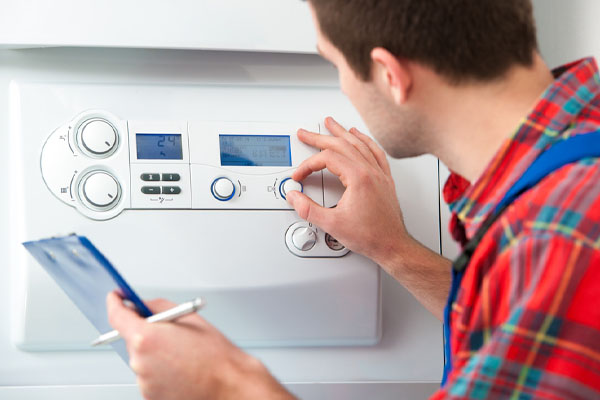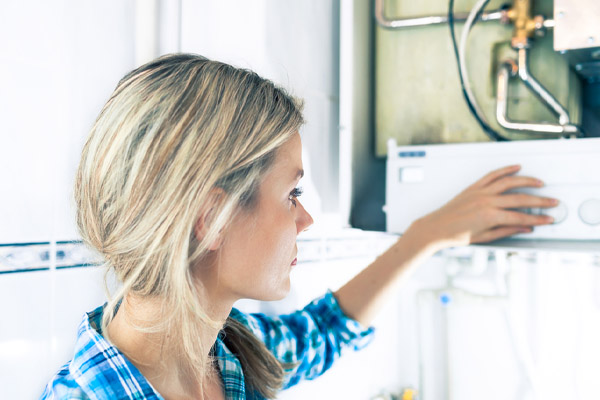Best Ways To Maintain Your Hydronic Heating System

Hydronic heating systems have proven to be a reliable solution for delivering warmth and comfort to homes over the years. These systems provide the benefit of even heat distribution without the associated indoor air pollution and drafts often experienced with forced-air HVAC systems that do not have regular filter changes. However, like any complex machine, a hydronic heating system requires appropriate servicing and maintenance to continue functioning optimally. Fortunately, homeowners equipped with the correct information can contribute substantially to the maintenance of their hydronic heating system. This article will serve as a comprehensive guide to effectively maintain a hydronic hot water system.
Enhancing Your Hydronic Heating System Maintenance Regime
Contents
Effective maintenance of a hydronic heating system falls into two main categories. The first involves tasks that need the skills of a professional, and the second encompasses those that homeowners can manage themselves.
Related Article: How to Determine Whether You Have an Energy-Efficient Heater
Why Do I Need Professional Support in Maintaining My Hydronic Heating System?

Professional HVAC system maintainers ease the homeowners’ maintenance workload. With their specialized training and experience, they can accurately inspect your system and pinpoint potential problems. Thus, it is crucial for homeowners to schedule yearly inspections with licensed technicians to ensure the system’s efficiency and their home’s comfort.
A boiler tune-up, akin to a car service, is an excellent preventative measure. It helps to keep small problems from developing into larger, potentially expensive repairs. This preemptive approach translates into cost savings and peace of mind for homeowners. Here are some of the key aspects covered in an annual inspection of the hydronic radiant heating system:
- Hydronic Heating System Tune-Up: This entails a thorough inspection of the system and necessary adjustments to ensure optimal performance.
- Expansion Tank: The air charge is checked and recharged if necessary. A complete inspection of the tank is performed to confirm that air vents are not blocked.
- Pressure Relief Valve: The valve is tested for correct operation, and any stagnant water is cleared out.
- Hydronic Glycol: The fluid’s pH level is assessed for degradation, which, if found, indicates a need to recharge the fluid.
- Drain Faucets & Shut-Off Valves: All faucets and shut-off valves are either repaired or replaced as needed.
- Combustion: The HVAC technician checks and adjusts safety controls, looks for blockages and leaks, and cleans the burner according to specifications.
- Circulator: The circulator and zone valves undergo an inspection to ensure they are functioning correctly.
- Wiring: The system’s wiring is tested for continuity and conductivity, ensuring proper electrical functioning.
- Valves: Every valve in the system is thoroughly inspected for proper operation.
This list isn’t exhaustive but underscores the importance of a yearly professional inspection of the hydronic heating system. Expert HVAC technicians can provide homeowners with assurance by performing a job well done. Besides professional assistance, homeowners themselves can also undertake several tasks to maintain their systems.
Related Article: The Best Ways To Prevent Running Out Of Heating Fuel This Winter
Homeowners’ Involvement in Hydronic Heating System Maintenance

Beyond professional assistance, homeowners can also directly participate in the maintenance of their systems. If unsure about any aspect, it’s always wise to consult with a professional. The list below illustrates some ways homeowners can be proactive in the maintenance process:
- Remain Vigilant: Keep an eye out for potential issues. Early detection of problems can prevent significant repairs down the line.
- Develop a Routine: Consider creating a monthly routine to overview the system, ensuring it’s running smoothly.
- Regular Inspection: Regularly inspect the furnace or boiler for calcium deposits and rust buildups, as these can lead to significant system problems if neglected.
- Check Water Levels: If a boiler’s water level drops too low, it won’t be able to handle the heat it produces. Regularly checking and maintaining the appropriate water levels is crucial.
- Clean Deposits: Clean calcium deposits or rust buildups using a solution of baking soda and vinegar, or other approved cleansers, along with a gentle scrubbing tool.
- Enhance Circulation: If familiar with the system, homeowners can drain the boiler and add oil to the pump motor to improve circulation, following the manufacturer’s instructions.
Although this list isn’t exhaustive, it provides homeowners with a baseline for getting involved in the maintenance of their systems. It also allows individuals to become more familiar with their hydronic heating systems.
Related Article: Can I Put Diesel Fuel in My Home Heating Oil Tank?
Getting Familiar With Your Hydronic Heating System
Homeowners who take an active role in maintaining their systems soon realize the benefits of their efforts. Here are several strategies to increase your knowledge and understanding of the hydronic heating system and its maintenance:
- Observe: By paying attention to how the system operates, you can learn a lot. Familiarize yourself with its components, normal sounds, and operating patterns.
- Network: Speak to others who own similar systems. You can learn a lot from their experiences and tips.
- Online Research: The internet is a valuable source of information. Research your specific system to gain a better understanding.
- Owner’s Manuals: Use the owner’s manual that came with your system as a reference. It contains a wealth of specific information about your system.
- Learn from HVAC Inspections: Take advantage of annual inspections or maintenance visits to ask professionals questions about your system. Most technicians are more than willing to share insights and guidance.
There’s a wealth of information available for those who seek it. As homeowners learn more about their systems, they become more adept at maintaining them, leading to potential cost savings in the long term.
Related Article: What Is The Best Temperature For A Home In The Winter?
Conclusion
Hydronic heating system maintenance is an ongoing task, not a one-time effort. Regular monthly inspections and annual professional maintenance should be a part of the homeowner’s routine. As homeowners become more comfortable and knowledgeable about the maintenance process, they can contribute more effectively to their system’s upkeep. The rewards of diligent maintenance include improved system efficiency, enhanced home comfort, reduced energy costs, and fewer necessary repairs.
Related Article: 7 Steps To Choosing A Boiler For Your Home
Call Miller Oil Company For All Of Your HVAC Requirements

At Miller Oil Company, we take pride in delivering top-notch heating and cooling services to both residents and businesses in the greater Enfield, Connecticut area. Our team comprises highly skilled and certified technicians who excel in HVAC tune-ups, repairs, installations, and replacements. With their expertise, training, and experience, you can trust that your HVAC system will be serviced to the highest standards.
Miller Oil Company is committed to providing the most cost-effective and competitive pricing for heating and cooling services in the region. Our maintenance services are designed to enhance comfort, improve energy efficiency and HVAC costs. Should you require HVAC repairs or a replacement system, our knowledgeable technicians will recommend the best options that suit your home and budget. We stand behind our HVAC work with a satisfaction guarantee. Contact Miller Oil Company today to schedule a service appointment, and don’t forget to ask about our free, in-home estimates.
To schedule a service appointment, contact Miller Oil Company today. We also offer free, in-home estimates. Click the link to view our service area.